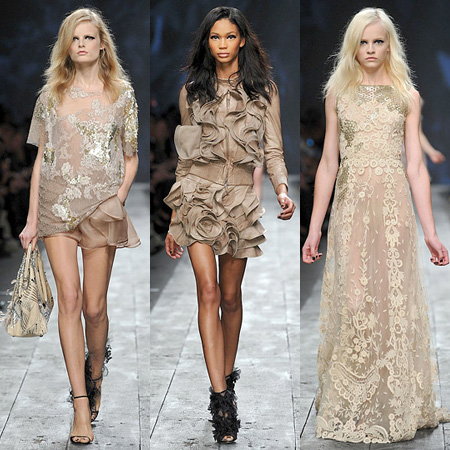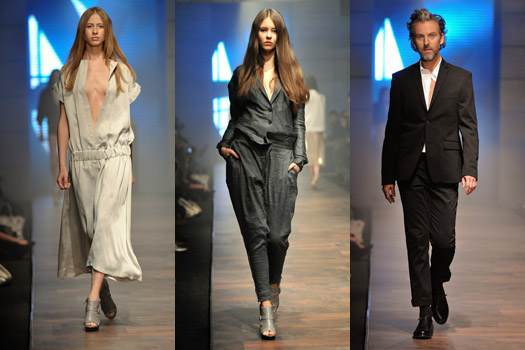
The news is one of those that will be discussed: London Fashion Week will sell tickets for its shows, allowing the public and non-experts to access the front row of major brands such as Burberry or JW Anderson. The idea is from the British Fashion Council, which announced in a statement:
Known for its creativity and innovation, London Fashion Week attracts an audience of press, buyers and industry professionals from over 50 countries who come to London to explore and discover the best creative talent; from emerging designers to heritage labels and internationally recognised fashion houses. In response to the ever-changing fashion landscape and the growing public interest towards London Fashion Week, the BFC is launching a new Fashion Week format to increase engagement and reach new audiences for designer businesses.
Will this revolution open the doors to the ultimate democratization of the fashion industry? No, it won’t. Or rather, not really. For press and buyers, in fact, the days from September 13 to 17 dedicated to the new proposals will not change much. Alongside the main schedule, six fashion shows for the public will be held on September 14th and 15th. The participating designers have yet to be announced, but ticket prices have appeared on the event’s website: 135 pounds will allow the access to the show, a drink, a shopper and entry to the talk Positive Fashion; while spending 245 pounds you will have, in addition, VIP passes, gadgets and seats in the front row. Those who choose one of these two options will also have access to creative installations, themed discussions with experts, focus on sustainability and ethics (#PositiveFashion), spaces where “fashion meets art, technology and music” (DiscoveryLAB).
More than a real sign of the opening of a system that has always been considered closed and elitist, the planned innovations represent the hope of the BFC to extend the presence of the LFW outside its official spaces. The idea is to “make #LFW a cultural city-wide celebration that will introduce fashion to a wider pool of people who may not have previously engaged with it or understand the incredible careers and opportunities that the industry holds”. Through collaborations with retailers, cultural institutions, brands and partners throughout the city, the BFC hopes to get sponsors to continue to support its initiatives such as the Vogue Designer Fashion Fund, which promotes emerging design talent.
Although the opening of the shows to the public is configured as a mere business strategy, on the other hand, it seems to be a further step towards greater accessibility of the fashion world. Thanks to the internet and social media, fashion weeks around the world have become less and less exclusive. The much-criticised presence of bloggers and influencers in the front row has even helped to open up a small gap inside the “fashion elite”. The September event, although limited to Saturday, September 14th and Sunday, September 15th, could mark a turning point and become an example imitated by other FWs. We bet on the New York one. Now there’s just one more question: won’t the excess of inclusiveness, besides giving a greater public and a greater receptivity, deprive the fashion shows of a certain charm linked to their uniqueness and elitism? We will discover it in the upcoming months.



